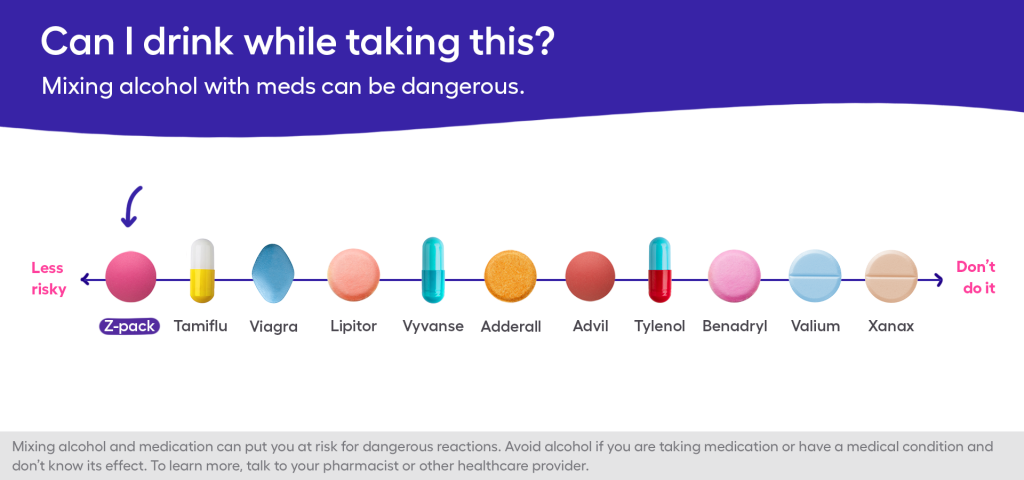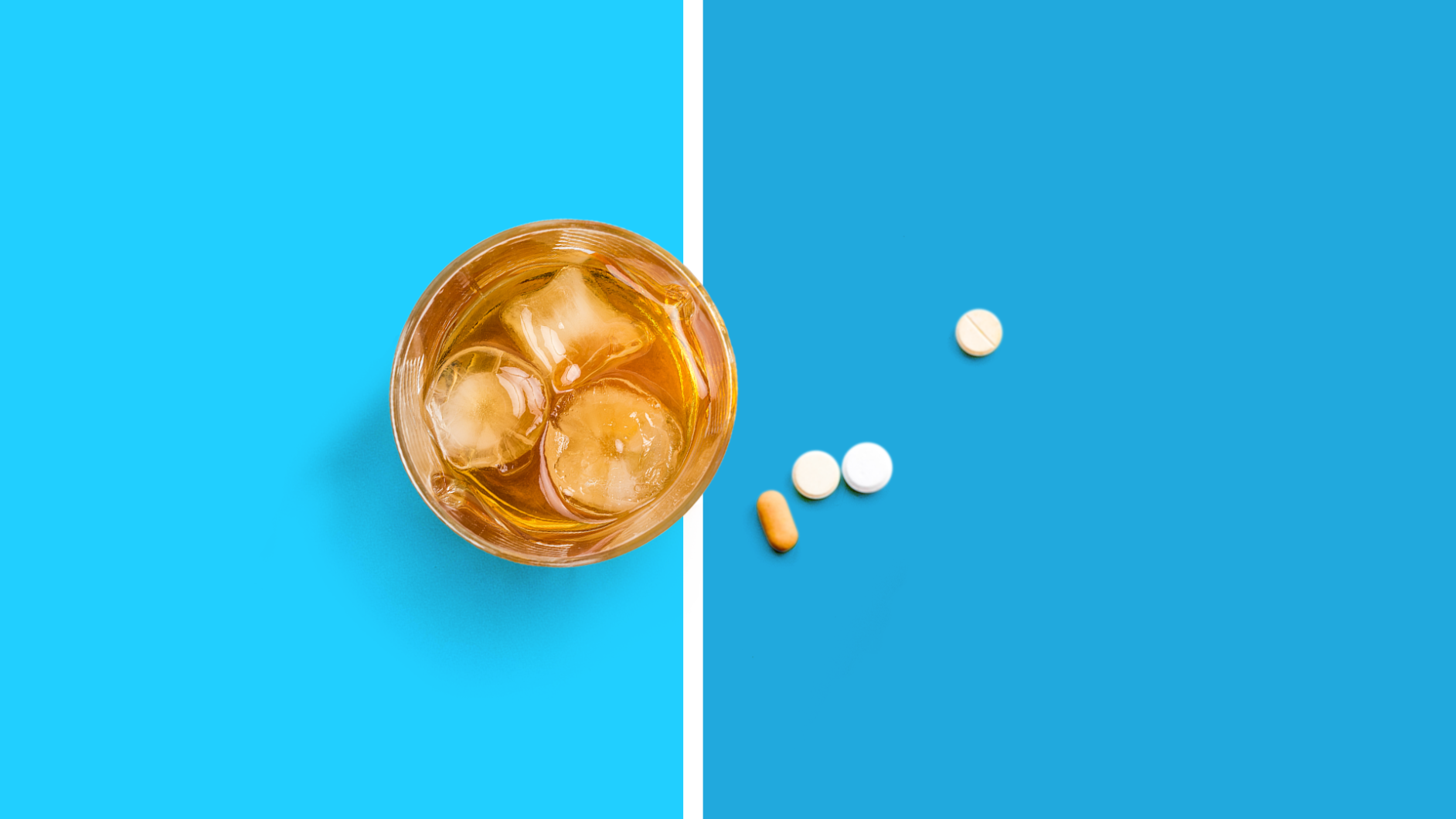Finally! The weekend is here and you are ready to kick back with a few libations. But wait—you’re still working through that course of antibiotics your doctor prescribed last week after your (insert name of pesky infection here) diagnosis. Is drinking alcohol safe? Or should you wait until you’ve completed the regimen and are officially infection free?
Effects of alcohol on infections
For the sake of your recovery it is probably better to just skip the vino and volunteer for designated driver duty instead, says Brian Werth, Pharm.D., an assistant professor at the University of Washington School of Pharmacy in Seattle.
“Alcohol has immunosuppressive effects, and it can prevent your ability to fight the infection you are taking the antibiotics for,” Dr. Werth says. “And it can make certain side effects of antibiotics worse.”
He’s talking side effects like upset stomach, nausea, vomiting, diarrhea, and dehydration, which are common side effects among most—if not all—antibiotics.
“If you are throwing alcohol into the mix … you can get sort of a compounding of these issues,” he says, adding that this could ultimately prolong your recovery.
Furthermore, according to the National Sleep Foundation, alcohol consumption can interfere with sleep quality. And since sleep is so important to the healing process, it is probably best to avoid anything that will keep you from getting enough ZZZs while your immune system is working on fighting that bacterial infection.
Is it safe to mix antibiotics and alcohol?
In terms of actual safety, the good news is that there is not a direct contraindication between alcohol use and most antibiotics. However, the keyword here is most. Common antibiotics like amoxicillin and azithromycin, for example, aren’t contraindicated (according to the Centers for Disease Control, out of 270.2 million antibiotic prescriptions written in 2016, 56.7 million were for amoxicillin and 44.9 million were for azithromycin). But some others are, and mixing them with alcohol could be risky, Dr. Werth says.

Which antibiotics can you not drink alcohol with?
“There are specific antibiotics that have a direct interaction with the alcohol metabolism pathway,” he says. “And those are the ones that pose the biggest risk of having a direct negative impact with co-administration with alcohol.”
The drugs in question? Flagyl (metronidazole; this includes prescriptions for vaginal forms as well as oral tablet form), Tindamax (tinidazole), Bactrim (sulfamethoxazole-trimethoprim) and Zyvox (linezolid) are the main offenders. You’ll need to avoid alcohol and products containing alcohol while you take these medications, plus for several days after when taking metronidazole or tinidazole.
Be sure to check labels for hidden sources of alcohol; mouthwashes or cough medicines may contain alcohol. Your pharmacist is a great resource if you need help!
Side effects of alcohol with antibiotics
However, in the event that you do wind up with a prescription for one of these, be aware that mixing these antibiotics and alcohol can cause some severe drug interactions, which could lead to: liver damage, high blood pressure, rapid heart rate, flushing of the skin, drowsiness, dizziness, and headaches. Some antibiotics, like Zyvox, may have a worse reaction to certain types of alcohol, like tap beer or red wine. For these reasons, drinking any amount of alcohol should be completely avoided while taking these medications, according to the Mayo Clinic.
Of course, these are just general guidelines. Speaking directly to your own doctor or pharmacist about your own specific prescription is always recommended. And most importantly, if you suspect you are experiencing a medication interaction it never hurts to call your doctor, Dr. Werth says.
“If someone is feeling really bad, it might be worth getting checked out,” he says.











